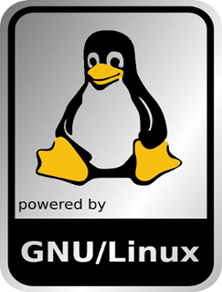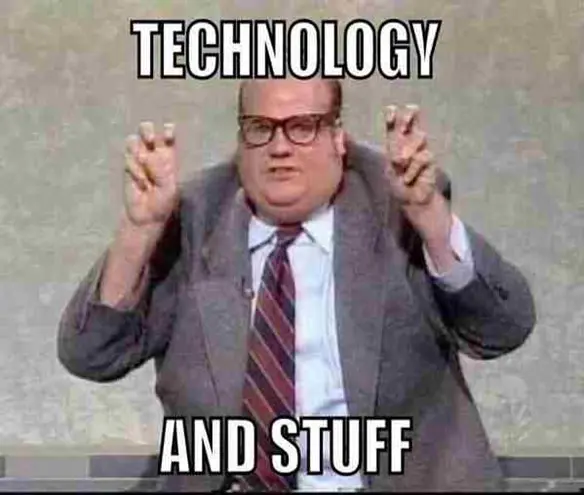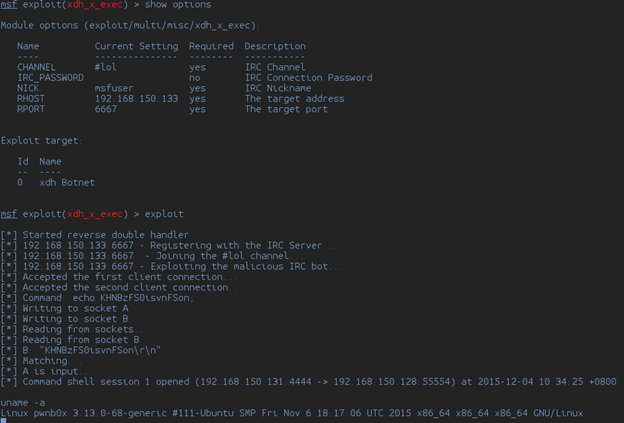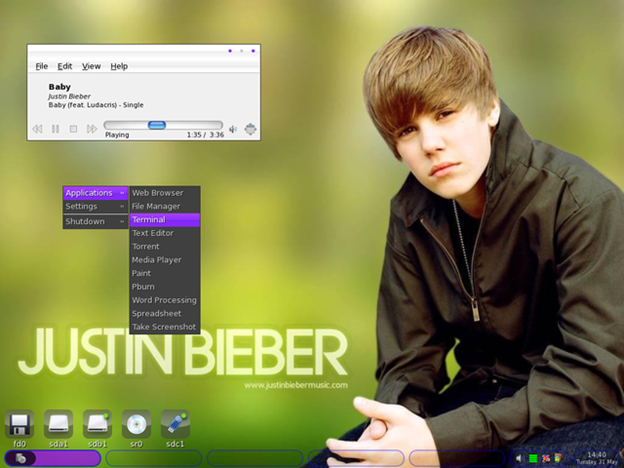Categorizing the Types of GNU/Linux users
I have been a GNU/Linux user for almost seven years now, and I have been using GNU/Linux since college. In fact, during my college years, I was the only Linux enthusiast and open source advocate in my batch. I love it, and it is my partner in crime for my job as an application security engineer especially the penetration testing distributions and open source packages I need for security testing.


FREE role-guided training plans
There are many types of GNU/Linux users, and chances are you have already met them in IRC, hacker conferences, developer conferences, Facebook, forums, etc. According to Jeff Hoogland's article entitled "The Four Different Types of Linux Users", there are four different types of GNU/Linux users and that one fits a distinct niche, and it is possible to change from one type into another over time. The GNU/Linux users are classified as Computer Users, Dual Booters, Linux Advocates, and FOSS Extremists.
Computer Users are normal GNU/Linux users who do not have emotional ties to Free and Open Source Software (FOSS) and GNU/Linux itself. These kind of users use Linux because it was pre-installed on their computer/ laptop, just to get the job done or because of the kind of work they have. It is possible though that the reason they are using Linux is because their friend or relative installed it on their computer or laptop. They use it for general computing and not because it is GNU/Linux. My mother is using Lubuntu just for browsing Facebook, and she doesn't have a clue on what OS she is currently using and then still treats it like Windows.
The Dual booters are users who may have Windows or Mac OS X as their primary operating system and then also installed GNU/Linux just to give it a try out of curiosity or because they saw a forum that says "in order for you to become a hacker you need to install Linux." Remember the BackTrack Linux 3-4 days? BackTrack Linux has some good old tutorials before on how to dual boot your computer with BackTrack without having to remove your Windows partition.
Linux advocates or supporters believe in the power of FOSS and preaches about it. They love GNU/Linux because of its stability and performance. They spread the word of GNU/Linux and may tend to convert Windows users to use GNU/Linux because it is cool. They don't hate you if you are fine using with Windows, unlike FOSS extremists. They are good mentors to Linux newbies and may help you setup one or probably just help you to read the manual. Some of these users are responsible for setting up a local Linux user group or conference.
FOSS extremists not only believe in the power of FOSS but also believe in the superiority of GNU/Linux or anything that is FOSS. They hate proprietary software and operating systems like Windows. They tend to spread the harm of using Windows and will usually hate you if you don't believe them. It is sad to say that some think that they are also superior computer users than other computer users who are using different kernels or operating systems.

Jeff Hoogland gave some good and excellent points and yeah he has explained the most general types of GNU/Linux users. In this article, we will be enumerating more types of GNU/Linux users with a different approach. We will try to define and categorize more of the four general types of GNU/Linux users with specific niches. We will also be labeling them according to Jeff's four different types of GNU/Linux users if possible.
The n00bs
They are the newbies to the world of GNU/Linux and are still learning to love its beauty and on how to set it up neatly. They could be Computer Users and Dual Booters. They are still struggling with the command-line or still playing the terminal by reading the manual or some ebooks. These are curious individuals who look for new possibilities and are newly converted GNU/Linux users by Linux advocates. Some of them are currently being mentored by Linux advocates and FOSS extremists.
Some of these guys use virtual machines to emulate and practice with different Linux distributions until they find their own preferred Linux distribution.
They usually ask questions in the forums or perhaps in some random Linux IRC (Internet Relay Chat) channels in Freenode. Some of them got bullied by Internet Trolls specifically the Linux Trolls (we will be discussing them later on) others were seenzoned but somehow they survived and will surely mature soon.
Linux advocates will talk to them in trying Ubuntu, Linux Mint, Debian, Puppy Linux and other easy to setup distributions.
The Anti-Windows Club
They are usually FOSS extremists, and they totally hate Microsoft and Windows. In social media websites like Facebook and Twitter, they create memes or ridiculous posts that will make fun of Windows. Take for example the image below:

Some of these kinds of users may think that Windows is totally insecure, and some may think it is bloated.
One of the things they tend to preach to other users is about the disadvantages of Windows like viruses, malware, errors, and everything related to BSOD (Blue Screen of Death).
The Penetration Testers and Offensive Security Advocates
These kind of GNU/Linux users love using penetration testing distros like Kali Linux, Pentoo, BackBox Linux, WEAKERTHAN Linux or BackTrack Linux because of its pre-installed tools and arsenal. They use GNU/Linux for vulnerability assessment purposes, penetration testing, or maybe for malicious purposes. These kind of people could be Linux Advocates or Computer Users.

The Distroists
If there is racism, there is also distroism. These kind of users may think that the distribution that they are using is superior to other distributions that are easy to setup. Most of these users are minimalists and hates Ubuntu and Ubuntu users. Imagine an Arch Linux user who boasts that the distribution he is using is better than yours because you are using Ubuntu – now that is distroism. They could be FOSS extremists and Linux advocates. They think they are elite because of using a distribution that is hard to set up.
The Minimalists
The Minimalists usually prefer Windows managers over Desktop Environments (DE) like Enlightenment, Afterstep, FVWM, Fluxbox, IceWM, etc. Some may prefer light Desktop Environments like LXDE (Lightweight X11 Desktop Environment) and Xfce. They are Linux advocates who preached about why GNU/Linux is lightweight and fast.
They love their setup to be simple and pleasing to the eyes without the graphics crazy OpenGL compositing manager named Compiz Fusion.
The Linux Trolls
The Linux Trolls are possibly n00bs' worst nightmare. Whenever a n00b asks a simple question, they usually reply them with the words "RTFM" (Read the F***ing Manual) or "Use Google!". Some of these users will advise n00bs to use dangerous commands like rm –rf and :(){ :|:& };: (fork bomb). Some of them are FOSS extremists, and some are insensitive Linux advocates who just want to have fun on picking n00bs.
Some Linux Trolls also create memes and distros for the sake of fun take for example the Justin Beiber Linux (also called Biebian).


The Command-Line Geeks
They prefer to use the command-line or the terminal rather than launching the application itself on the Windows managers and Desktop Environments. Most of these guys are typical network administrators and system administrators. They just want to see the terminal with green fonts and black screens because it is cool. Nah that was a joke. However, they just want the texts and the black screen.
The Linux Security Researchers
They could be Penetration Testers and Offensive Security Advocates, but more importantly, they don't just use GNU/Linux for penetration testing and vulnerability assessment but for making GNU/Linux a secure one – hence not to be confused with the usual penetration testers and offensive security advocates. They do bug hunting for the Linux kernel and the applications or packages for GNU/Linux. If a security bug is found, they responsibly disclose it to the Linux developers or the security community. These guys are heroes of the open source community. Stephane Chazelas, the guy who found Shellshock is a good example of a Linux, security researcher.
The Linux Developers
These guys are responsible for the release of the new kernel versions and for letting GNU/Linux mature. Without them, Linux wouldn't be a reality. The father of Linux developers is none other than Linus Torvalds himself who is also the creator of the Linux kernel. They are a community of Linux Advocates who built Linux and still developing it for the greater good.
The Graphics Crazy Tweakers
These guys are artists and prefer to have a lot of effects on their Desktop Environment. They don't care about simplicity; they want you to be impressed by the effects and graphical craziness of GNU/Linux. They love Compiz Fusion and Conky.

References:
http://jeffhoogland.blogspot.com/2010/06/four-different-types-of-linux-users.html
http://ubuntuforums.org/showthread.php?t=1074716
http://www.gnu.org/gnu/why-gnu-linux.en.html

FREE role-guided training plans









